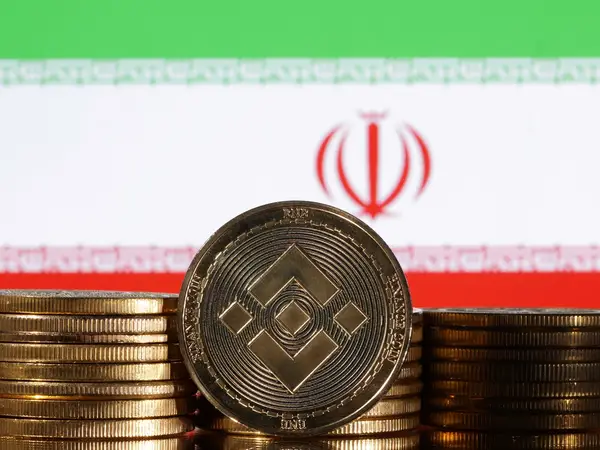Binance, the world’s largest cryptocurrency exchange, has been implicated in allegations of violating Iran sanctions and terrorism funding by the US Treasury.
In a historic move described as “the new era in crypto crackdown,” the US Department of Justice, Treasury, and the Commodity Futures Trading Commission have imposed a record $4.4 billion fine on Binance on allegations that it enabled the laundering of substantial sums of illicit money worldwide.
US Treasury Secretary Janet Yellen said "Binance turned a blind eye to its legal obligations in the pursuit of profit. Its willful failures allowed money to flow to terrorists, cybercriminals, and child abusers through its platform."
Crypto wallets at Binance were found to interact with bitcoin wallets associated with groups designated as terrorist organizations by the US and several other countries, including the Islamic State and al-Qaeda as well as the armed wing of Iran-backed Hamas, and another Iran-funded militia the Palestine Islamic Jihad (PIJ), the US said.
The global trading platform, which accounts for about half of all crypto activity, is charged with facilitating money laundering, aiding terrorist networks like Hamas, and violating sanctions on countries such as Cuba, Iran, Russia, Syria, as well as playing a role in human and narcotics trafficking. The indictment accused Binance of conducting over $1 billion in transactions with sanctioned countries and criminal actors.
US Attorney General Merrick Garland said Binance enabled nearly $900 million in transactions between US and Iranian users, noting that it had a "significant customer base" from some sanctioned jurisdictions and was aware that Iran represented "the majority of such customers." From around January 2018 to May 2022, Binance processed 1.1 million crypto transactions worth at least $898.6 million between US customers and those who lived in Iran, he added.
Around 2019, Binance continued to serve "thousands of users" identified as being from sanctioned countries, the US said, including over 12,500 users who provided Iranian phone numbers.
In 2022, Reuters cited blockchain data as indicating that the crypto giant has processed Iranian transactions with a value of $8 billion since 2018 despite US sanctions intended to cut Iran off from the global financial system. Almost all the funds, some $7.8 billion, flowed between Binance and Iran's largest crypto exchange, Nobitex, according to a review of data from leading US blockchain researcher Chainalysis. Nobitex offers guidance on its website on how to skirt sanctions.
Three-quarters of the Iranian funds that passed through Binance were in a relatively low-profile cryptocurrency called Tron that gives users an option to conceal their identities. In a blog post in 2021, Nobitex openly instructed clients on how to use Tron -- a mid-tier token -- to trade anonymously without "endangering assets due to sanctions."
There is no easy way to differentiate between the crypto transactions done by people linked to the Islamic Republic and those by ordinary Iranians. Binance said July 2022 that it follows international sanctions rules on Iran and blocks access to the platform to anyone based there. However, almost all Iranian customers used VPNs to conceal their locations and continued trading on Binance.
Billionaire Binance chief Changpeng Zhao stepped down and pleaded guilty to breaking criminal US anti-money laundering laws as part of the settlement resolving a years-long probe into the crypto exchange, prosecutors said on Tuesday. Zhao faces a possible prison sentence of between 10 and 18 months, according to US sentencing guidelines.
